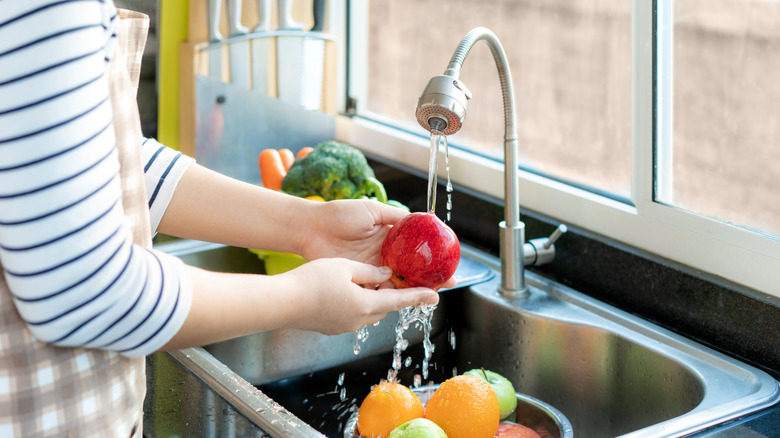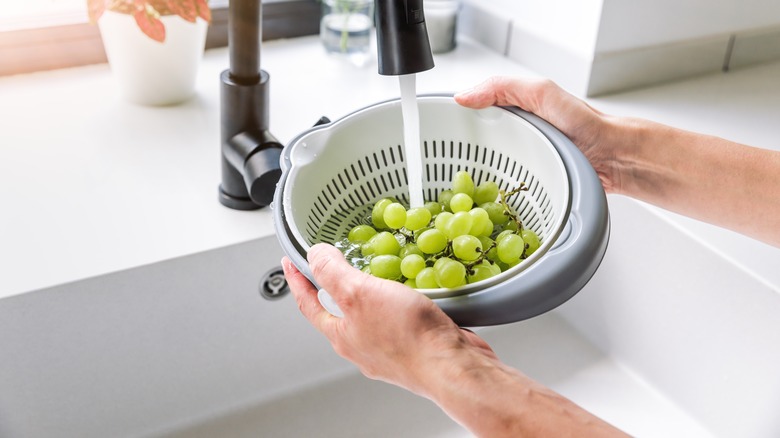Avoid Making This Mistake When Washing Fruit
Before biting into a crisp apple or tossing a handful of berries into your smoothie, it's important to wash your fruit first. A quick rinse isn't just about removing visible dirt. It helps clear away bacteria and pesticide residue you don't want to ingest. Even fruits you don't eat the peel of, like lemons or mangoes, should get a wash. After all, if you're cutting an entire watermelon without washing it, any contaminants sitting on the surface can transfer straight into the juicy flesh inside. But when you do wash fruit, skip the soap!
While it might feel instinctive to grab soap when you're already at the sink, it can actually do more harm than good. Fruits are naturally porous, meaning they can absorb substances like soap or dish detergent. Not only does this leave a lingering soapy taste, but it also puts you at risk of consuming chemical residues that aren't approved by the FDA for food use.
One of the common myths about washing fruits is that bleach is the way to go. Bleach and other household cleaners, however, are even more dangerous and should also be avoided. Hot water is another no-go. Although it might seem like it would sanitize better, the high temperatures can damage the fruit's natural protective barrier, making it easier for bacteria to sneak inside. Avoid all these harmful cleaning agents, sticking to safe, fruit-friendly washing methods instead.
Safe methods of washing fruit
Using soap is just one of the mistakes people make when washing fruit. Another common one is not washing your hands first. If you go straight from handling groceries, touching your phone, or even just opening the fridge, you can transfer germs onto the fruit. Another mistake is peeling or slicing before rinsing, which lets bacteria from the outer skin sneak right into the edible portion. Start every wash session by giving your hands a good scrub with soap and water.
Once your hands are clean, it's time for the fruit. For sturdy produce like apples, pears, or citrus, rinse the whole fruit intact under cool running water for about 30 seconds, rotating it as you go so every surface is cleaned. For delicate fruits like berries, wash them only right before eating so they don't turn mushy or spoil faster. Place them in a colander, run cool water over the top, and gently move them around. Pat them to remove excess water or dirt and keep them fresh.
When concerned about pesticides, baking soda is key to cleaning your fruit more thoroughly. Research published in the Journal of Agricultural and Food Chemistry found that soaking apples in a baking soda solution removed more pesticides than plain water or even bleach. For a quick DIY soak, mix 1 teaspoon of baking soda per 2 cups of water, let your fruit sit for 12–15 minutes, then rinse thoroughly before eating.

